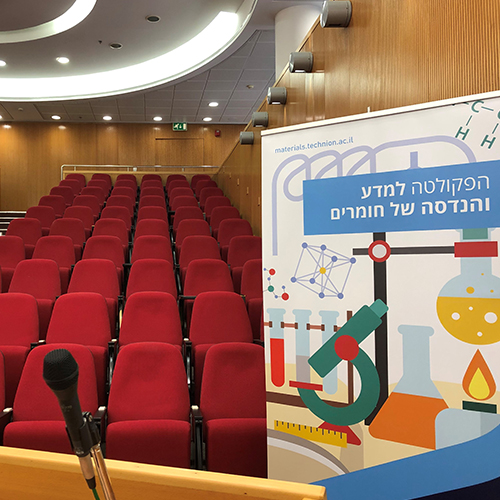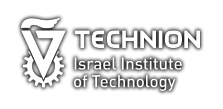
Dr. Georgy A. Dosovitskiy
26/01/2023
David Wang Auditorium, 3rd floor Dalia Meidan Bldg.
14:30
Scintillators are used as detector materials for various kinds of ionizing radiation in applications ranging from medical imaging to fundamental physics. Each application has its own demands and limitations on scintillator properties, such as light yield, decay kinetics, time resolution, stopping power, etc. Complex garnet oxides allow varying their properties by means of changing host composition and activators via tuning of bandgap edges and energy levels splitting in luminescent centers. It will be shown, how these scintillators could be tuned for the detection of gamma-quanta, alpha-particles, neutrons, etc. Ceramics further allows for achieving a more complex shape of an object compared to single crystals, because colloidal compaction techniques, including 3D printing, could be used for its formation. It will be demonstrated in the talk, how objects with 200-500 micron features may be produced with a DLP stereolithography approach on a regular commercially available printer, and their scintillation properties are not inferior to bulk ceramics. Glass scintillators and pigment-based screens would be briefly discussed as well.
BIO
Dr. Dosovitskiy hold a M.Sc. from the Department of Materials Sciences of Lomonosov Moscow State University and a Ph.D. in solid-state chemistry from the same institution (thesis is on textured Ni-alloy substrates and oxide buffer layers for high-temperature superconductor wires, advisor – Prof. A.R. Kaul). Worked at TU Braunschweig (Germany) and at Poitiers University (France) as a visiting Ph.D. student.
Worked in the Institute of Chemical Reagents and High Purity Chemical Substances of the National Research Centre “Kurchatov institute” as a senior and a lead scientist and in National Research Centre “Kurchatov institute” as a deputy lab head until 2022, as well as in a private company – NeoChem JSC, as a researcher. A member of Crystal Clear Collaboration, CERN, until 2022. Main research areas – scintillators, ceramic, and glass materials


